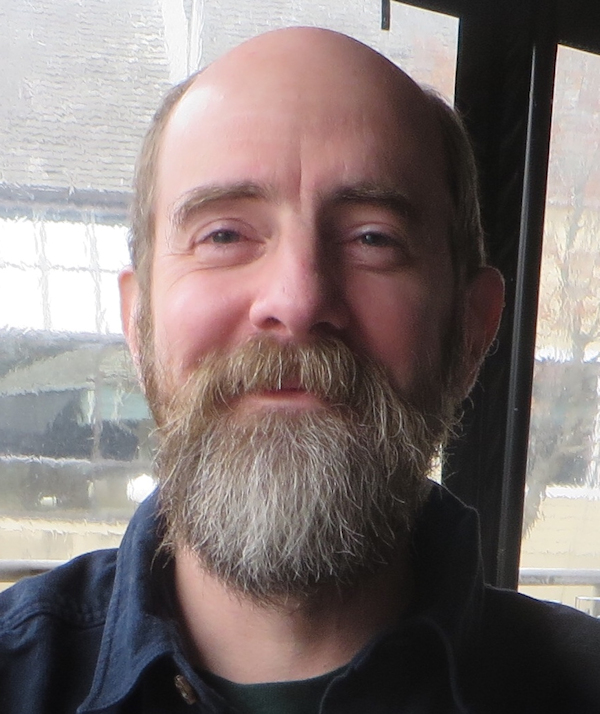 Today we’re delighted to bring you an interview with Scott H. Andrews, editor for the World Fantasy Award winning magazine, Beneath Ceaseless Skies. As well as being a master editor of short fantasy fiction, Scott will soon be running an online course with Odyssey Writing Workshops all about crafting the emotional truth of characters—which, as we’ll find out, is a key ingredient in any successful submission.
Today we’re delighted to bring you an interview with Scott H. Andrews, editor for the World Fantasy Award winning magazine, Beneath Ceaseless Skies. As well as being a master editor of short fantasy fiction, Scott will soon be running an online course with Odyssey Writing Workshops all about crafting the emotional truth of characters—which, as we’ll find out, is a key ingredient in any successful submission.
You’re the editor of the amazing Beneath Ceaseless Skies, which has been giving us great short fantasy fiction since 2008 (thank you!). It’s clearly been quite a journey, involving a lot of time and effort. What led you to short fantasy fiction in the first place and what keeps you giving so much of your life to championing it?
I’ve loved fantasy fiction in general since I was a kid—Lord of the Rings, Earthsea, Dune. I think for me it’s something in the awe and wonder I feel in exploring a world different from our own and extends in some paranormal way beyond the limits of what we think is possible in our own world. Short fiction, I became exposed to through more through English class, but many of those stories, like Shirley Jackson’s “The Lottery” or Faulkner’s “A Rose for Emily” or most anything by Poe, have a sensibility that overlaps a bit with speculative fiction. More pulp-ish flavors of fantasy of course have a great tradition in short fiction, like Conan and Fafhrd & the Grey Mouser.
By the time I got back into fantasy as an adult, I was more interested in the characters; in character-centered stories. I love the line from Faulkner’s Nobel Prize speech that the only thing worth writing about is the human heart in conflict with itself. That may sound like highbrow English-class stuff, but there’s an author in SF/F/H today who I’ve heard reference that Faulkner quote: George R.R. Martin. His fantasy is the most popular in the world, and he’s constantly praised for his characters and how realistic and emotive they feel. His work captures those human highs and lows, those profound comments on what it feels like to be a parent or a sibling or a hero or a failure or a survivor. That’s the character-centered focus I love to read in fantasy, especially fantasy short fiction.
But back in 2008, there was no magazine publishing character-centered fantasy set in other worlds. A few magazines would publish one or two stories a year that fit that, but there was no go-to home for readers to find it or for writers to send it. So, I decided to create a home for it.
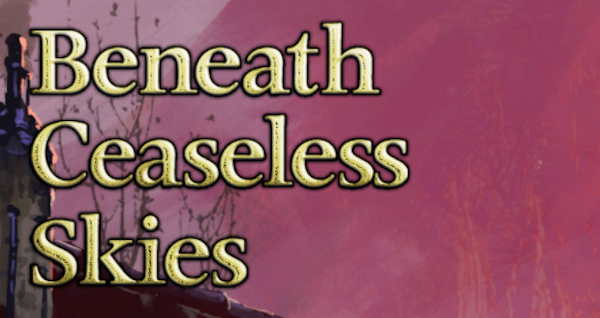
I’m continually delighted that it has resonated with authors and readers. A big part of it may be that so many of the writers who BCS has published are so great at capturing the human heart in conflict with itself, including conflicts that feel to me very relevant and resonant with our real-world times, such as conflicts of personal identity or role in society or living under authoritarianism, and happening in worlds where the fantasy world or fantastical conceit are perfectly designed or positioned to highlight the conflict and themes.
One thing that keeps me giving so much of my life to it is I love working with writers, especially new and emerging writers. I’m a short fiction writer myself, although lapsed, and a teacher, as you note later in this interview. I love interacting with writers about their work and the editorial process when I’m able to help them hone their vision for a story and make it the best it can be. I often get appreciative comments from writers I’ve edited, from new debut writers to multiple award-winners, and that to me feels great; it means I’ve done my job in helping them make the story be the best execution of their vision for it that it can be.
BCS has published some amazing work over the years. Is there a particularly special moment you can remember having as an editor? A particular story that left a mark, an author whose career you helped launch, or maybe a nomination or award win that really made a difference in your journey?
There have been so many moments that were special to me that it’s difficult for me to single out just a few. I have always been treated as a colleague by other editors, including before BCS had published even the first issue, and I will always be grateful for editors like Neil Clarke taking the time to answer my questions before I had amounted to anything. Our first Hugo Award finalist in 2013 was a great moment, and I feel honored every time award voters or judges single out BCS or our stories for recognition.
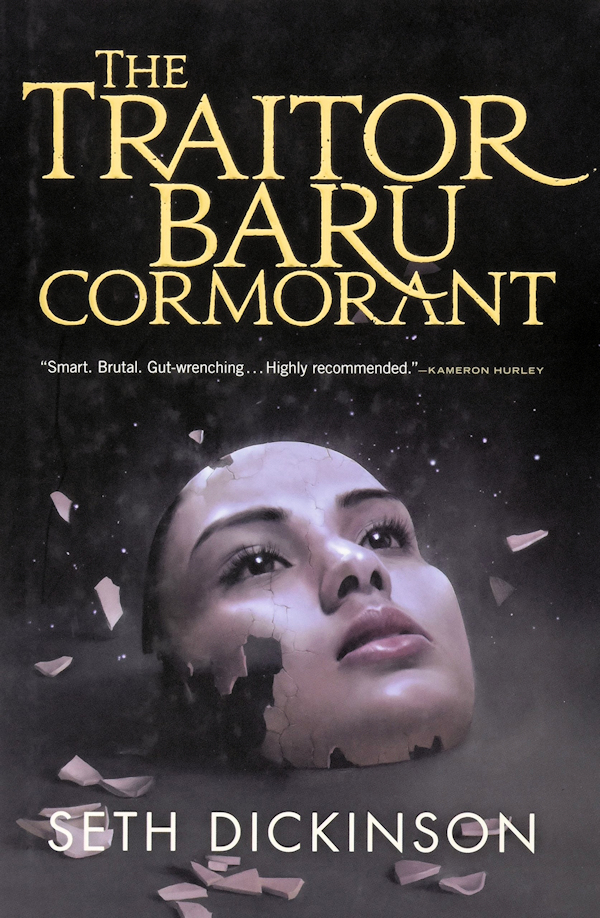 For stories, I remember where I was when I read Seth Dickinson’s “The Traitor Baru Cormorant, Her Field-General, and Their Wounds” in the slush submissions, the story that was Seth’s SF/F debut and became the seed for his later novel series about Baru Cormorant. The story’s insight into a person looking back on their life and an important relationship in their past changed by a political decision, and its portrayal in a taut conversation, was just stunning to me. I also remember flat-out weeping at R. B. Lemberg’s “Geometries of Belonging” and Caroline M. Yoachim’s “Carnival Nine”.
For stories, I remember where I was when I read Seth Dickinson’s “The Traitor Baru Cormorant, Her Field-General, and Their Wounds” in the slush submissions, the story that was Seth’s SF/F debut and became the seed for his later novel series about Baru Cormorant. The story’s insight into a person looking back on their life and an important relationship in their past changed by a political decision, and its portrayal in a taut conversation, was just stunning to me. I also remember flat-out weeping at R. B. Lemberg’s “Geometries of Belonging” and Caroline M. Yoachim’s “Carnival Nine”.
I don’t feel I helped launch anyone’s career; I feel that the BCS writers who’ve gone on to great things, like Seth or R. B., were headed there inevitably because of their great writing and profound insight, but I’m delighted BCS was able to help share their work with the world.
What do you look for in any short fantasy fiction that crosses your path?
I think a good epitomization of what in stories stands out to me is that Faulkner quote above: “the human heart in conflict with itself.” I want to see a character who is dealing with some sort of conflict, whether an external struggle like plot obstacles or an internal one like trying to overcome flaws or to grow in relationships, or ideally both something external and something internal. To that end, I think I gravitate toward executions of point-of-view that feel to me closer to the character rather than distant or like the voice of an external narrator; a voice that puts me in the character’s shoes rather than a voice that’s telling me a story about the character.
But the story also needs to make me FEEL something about the character who is in conflict. I get many stories that have a character in an interesting situation, and I can tell the character is in conflict and experiencing emotions about it, but the writer isn’t executing the story such that the writing makes me feel that for myself; makes me feel what it means to be who that character is. That’s probably the most common thing I see in submissions that makes a story not work for me—the story has character emotion in it, but the story is telling me or showing me it, not making me feel it. For me it’s not enough just to see the character and understand them and know what they are feeling; the story has to resonate off the page and make me emote for the character.
As an expert in the field, do you have any tips for those of us who love reading short fantasy fiction and would love to write it well, but aren’t particularly comfortable with the form?
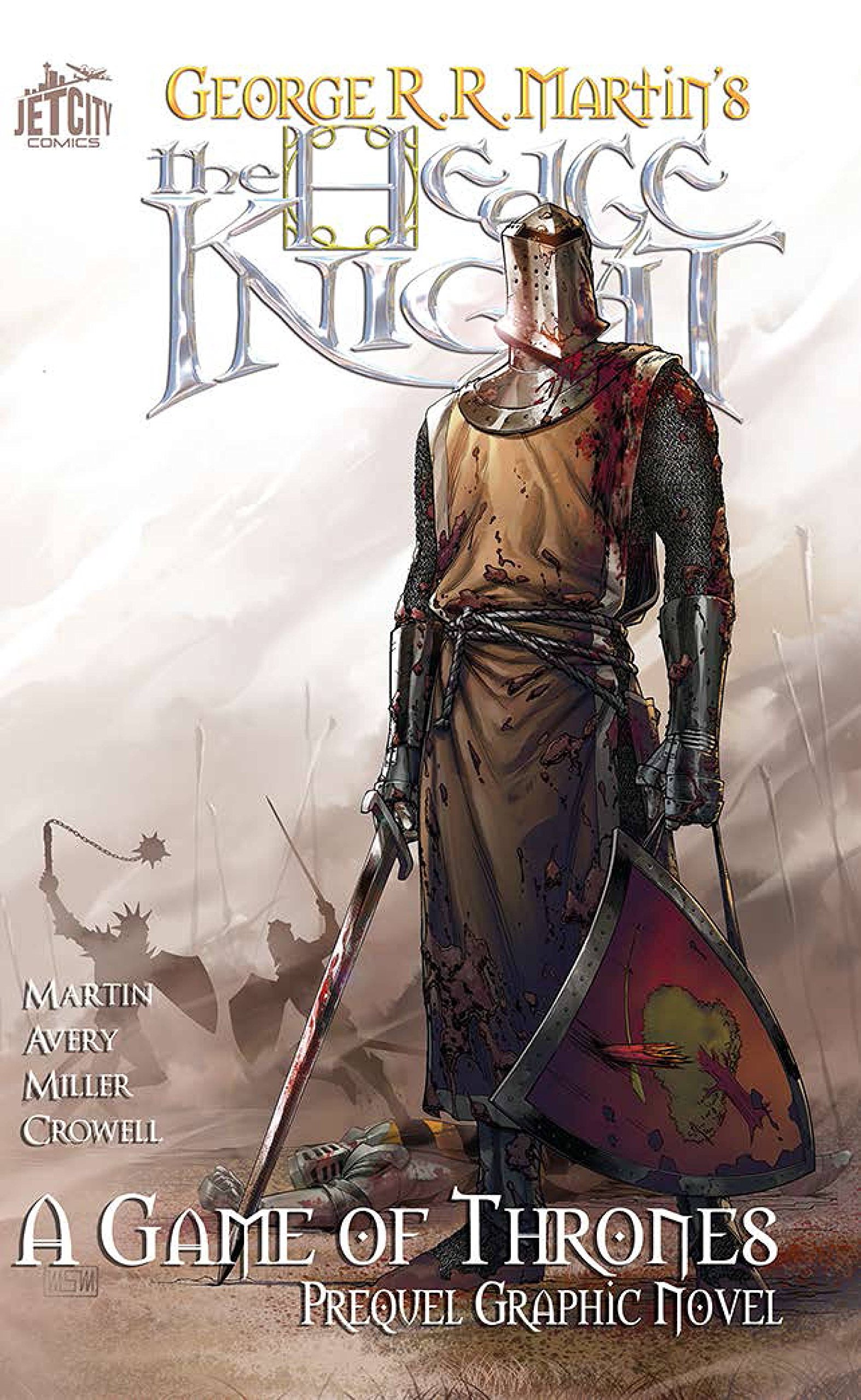 I do get the sense, from conversations I’ve heard with writers, that some writers feel secondary-world fantasy is not possible to do at a short fiction length. I think that’s thoroughly incorrect. (For an example, I point readers to George R.R. Martin’s novella “The Hedge Knight,” short fiction set in his Ice and Fire world, which in my opinion is the best thing he’s ever written.)
I do get the sense, from conversations I’ve heard with writers, that some writers feel secondary-world fantasy is not possible to do at a short fiction length. I think that’s thoroughly incorrect. (For an example, I point readers to George R.R. Martin’s novella “The Hedge Knight,” short fiction set in his Ice and Fire world, which in my opinion is the best thing he’s ever written.)
To me, several considerations for writing secondary-world fantasy at short fiction length are to focus on only one focal character or point-of-view character and to pare the span of the plot down to a crucial segment of their life experience, ideally one that leaves them and/or their surroundings changed in a significant way. For worldbuilding in fantasy short fiction, there isn’t time for tangents about the world’s history or institutions; for me, all of the world details and exploration a short story includes need to also be thoroughly connected to the character or their conflict or need to be imbued with emotional resonance.
Which definitely can be done. Again, Martin is great at connecting his world’s history and the passages recounting it to the relationships and emotions of real people. His exposition about the waterfall in the Vale called Alyssa’s Tears, is not only a moving account of a person suffering grief; it also shows how societies and peoples memorialize legends that address universal parts of human nature.
Another thing I think it’s crucial to consider for writing secondary-world fantasy at short fiction length is the pacing of the story. Many writers are accustomed to secondary-world fantasy and its worldbuilding moving at the more relaxed pace that the length of a novel allows, but for me, a short story needs to keep the pace moving or the short fiction reader may lose interest. Especially in the opening, where the story and the character must pull the reader in. Worldbuilding can be worked in there if it’s vital, but often it is better saved for after the story has gotten going.
I do think secondary-world fantasy short fiction works well at the 7000-9000 word range, which some award categories would call a novelette. That’s longer than most short stories and most science fiction stories, and longer than most stories published in online magazines. BCS was the first online magazine as far as I know to have a very high word-count limit—10,000 words. We’ve since raised that to 15,000, and most other online zines have raised theirs from 4000 or 5000 to 8000 or 10,000, but most of the stories we publish fall in that 7000-9000 word range, which for me usually ends up a great balance between short fiction-style quicker pacing with secondary-world fantasy rich worldbuilding.
You’re an instructor at the online Odyssey Writing Workshops this winter, teaching “Emotional Truth: Making Character Emotions Real, Powerful, and Immediate to Readers” (which sounds fantastic by the way). How important is emotional truth in fiction and what’s your favourite example where it’s been done well?
Character emotion—the characters having emotions and, to me even more important, the writing on the page making those emotions come through clearly and resonate for the reader—is the number one reason submissions stories do or don’t work for me. As I mentioned above, for me it’s not enough just to see the character or understand what they’re feeling; the story has to resonate off the page and make me FEEL it myself.
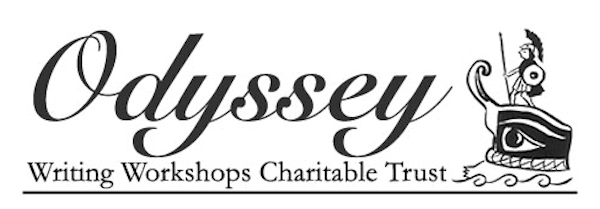
Also, in my experience the ability to make the reader feel is an aspect of writing or an achievement in writing skill that seems very difficult, even frustrating or maddening, for writers to figure out or learn or command. I know I wasn’t able to achieve it in my own writing, and only after years of reading submissions and helping writers to hone their stories was I able to piece together, from disparate resources and my own insights, some ideas and tools for approaches to give writers emotional substance to draw on and techniques to deploy it in their writing.
A great example of a story that makes me feel, which I have the students in the Emotional Truth class read, is Caroline M. Yoachim’s “Carnival Nine” in BCS, which was a finalist for the Hugo, Nebula, and World Fantasy Awards. It features a character in family situations that are profoundly emotive, and it portrays the situations and the protagonist’s emotional journey through them in ways that resonate deeply. Another great example is the opening scene of that Martin novella, “The Hedge Knight.” When it’s done so well, it soars right off the page and sweeps you up in it.
As well as now teaching classes, you were also a graduate of the workshops! What in particular with Odyssey gave you the tools to develop your craft to such an extent the student has now become the master?
For me as a student, Odyssey gave me a complete basic education in writing and genre writing that allowed me to level-up my writing, among a class of other insightful new writers. I would definitely not say I’m a master—especially not of writing; my own writing never reached the level of a zine like BCS. I do think I’ve acquired a great deal of insight, into what works for me, and also into the mindset and approach of workshop-graduate young and emerging writers, because I was one myself.
That’s the facet of my experience as an Odyssey student I draw on most often these days. I know the yearning workshop-graduates and emerging writers have to break through and get published; I know the frustration of repeatedly getting rejections and not knowing why those stories didn’t work for editors, when you the writer thought they did work. All rejections BCS sends contain personalized comments, which is extremely rare in our field; the reason I and our first readers—Kerstin Hall, Deirdre Quirk, Rachel Morris, and Beth Horn—put in that extra time is because I want to offer extra potential learning experience to all our submitters, especially new writers and workshop grads.
I also know some of the rabbit-holes new writers and workshop grads can end up chasing themselves into, if their experience is anything like mine was, in both the writing itself and in dealing with editors. That’s why, for example when I offer a writer a rewrite request on a submission, I encourage them to take their time with the revisions, including setting the story aside for a week after they’re finished and look over it again with fresh eyes.
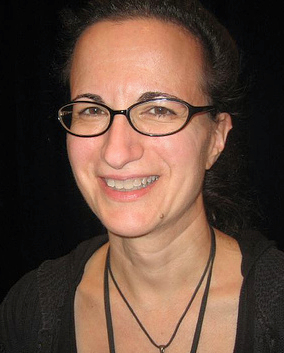 Teaching writing is for me an extension of that. I have an unusual combination of insight about short fiction and editing and insight about the mindset and approach of emerging writers, I have over thirty years of teaching experience, and I enjoy synthesizing the elements I feel are important and sharing them with students.
Teaching writing is for me an extension of that. I have an unusual combination of insight about short fiction and editing and insight about the mindset and approach of emerging writers, I have over thirty years of teaching experience, and I enjoy synthesizing the elements I feel are important and sharing them with students.
A great advantage of Odyssey is most of the lectures and organization of the class material is done by the same person, Jeanne Cavelos, who’s a former major-imprint editor and college writing teacher; that provides a consistency and thoroughness other workshop formats don’t have.
Thank you so much to Scott for taking the time to chat to us and offer up such wonderful insights and to Odyssey Writing Workshops for setting up the interview!
For those interested in the online classes, you can find all the information on the Odyssey Writing Workshop website. The deadline for registration is December 7.
Title image by Avant Choi.

